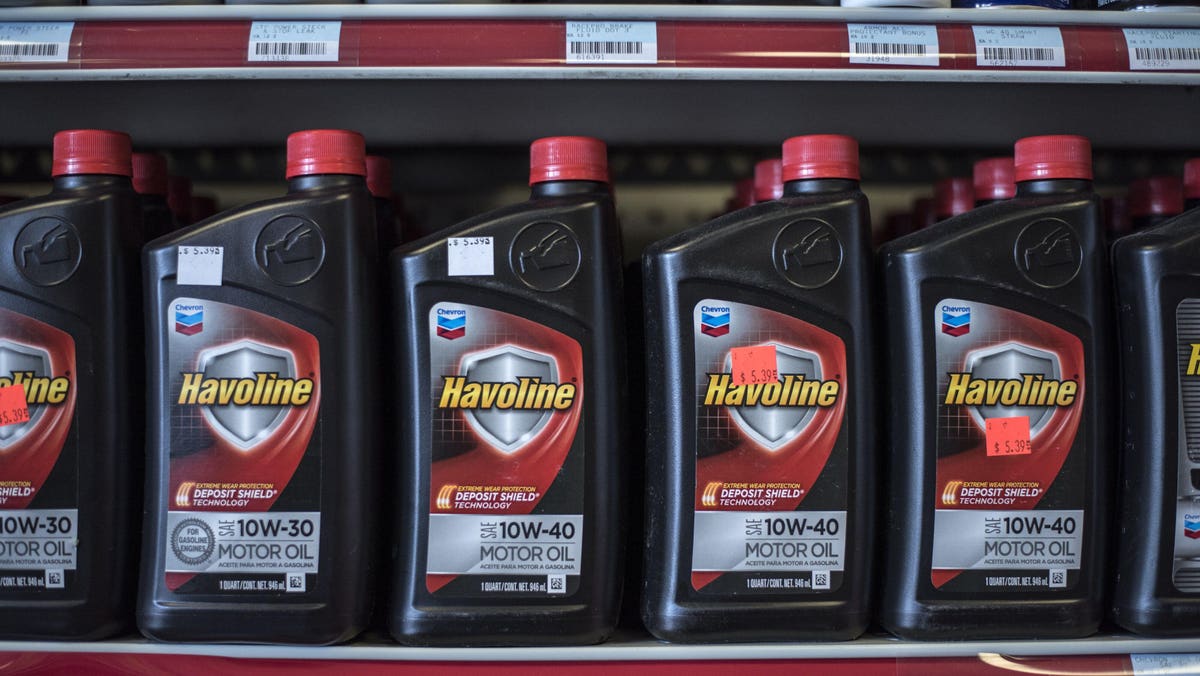Topline
Advance Auto Parts stock collapsed on Wednesday after a worse-than-expected earnings report revealed growing price cuts have started to eat away at profit margins—adding to signs companies may be forced to lower prices aggressively for goods and services in the coming months as the broader economy slows down.
Key Facts
Shares of the Raleigh, North Carolina, company cratered 31% by 10 a.m. EDT on Wednesday after the firm reported comparable store sales fell 0.4% last quarter despite expectations calling for a 0.7% increase, and net income clocked in at $42.7 million, or 72 cents per share—far worse than average projections of $2.65.
CEO Tom Greco lamented the firm faced “higher than planned” costs to help “narrow competitive price gaps,” in a statement issued with the earnings report.
In a Wednesday email, Vital Knowledge founder Adam Crisafulli called the statement “code for slashing prices,” and though it’s still unclear whether this is the start of a broader trend, Crisafulli says it’s “certainly notable” the price cuts are happening in the auto industry, which has been one of the biggest drivers of skyrocketing inflation the past couple of years.
“This gets to the heart of what is our single biggest concern,” Crisafulli said, noting the risk has shifted from the Federal Reserve potentially doing “substantially more” as it fights rising prices to falling inflation and potential price wars harming earnings more and tanking stocks as a result.
A representative for Advance Auto Parts did not immediately respond to Forbes‘ request for comment about how prices played into earnings and which items faced the steepest cuts, but according to the latest data from the Census Department, motor vehicle prices have continued to rise through at least April.
Nevertheless, fellow car-parts retailer Autozone hinted at similar weakness in its earnings report earlier this month, saying it is now seeing inflationary trends “moderate,” as it negotiates some cost reductions from vendors.
Key Background
As earnings season comes to a close, corporations have been vastly resilient despite economic headwinds—and many have exceeded expectations. Average revenues rose 4% in the first quarter, compared with forecasts calling for a less than 2% growth. Nevertheless, there are signs of weakness. Earlier this month, Foot Locker shares plunged nearly 30% after the company reported disappointing earnings as it was forced to invoke “aggressive markdowns” to help bolster sales. Meanwhile, shares of Autozone are down 13% over the past month.
Crucial Quote
“We expect any summertime [stock market] strength to be short-lived with downside pressure on stocks returning in the fall, as the market starts to price-in lower earnings estimates,” says Robert Schein, chief investment officer of Blanke Schein Wealth Management. He expects the S&P 500 could dip below 4,000 in the final few months of the year—a roughly 5% decline from current levels.
Tangent
Over the past year, the Fed’s interest rate hikes have triggered steep downturns in the housing and stock markets, and some experts fear the higher borrowing costs could ultimately trigger a recession. Economic growth in the first quarter slowed to an annual rate of 1.1%—far less than economists projected and also below 2.6% growth reported in the third quarter. Declines in the housing market and business investments were among factors leading to the worse-than-expected growth last quarter, according to the Bureau of Economic Analysis. And even Fed officials last month said they now expect the U.S. will fall into a “mild recession” later this year.
Inflation Unexpectedly Ticks Down—But Prices Still Rose 4.9% In April (Forbes)
Looming Recession For Small Businesses? Optimism Index Hits 10-Year Low (Forbes)
Read the full article here


